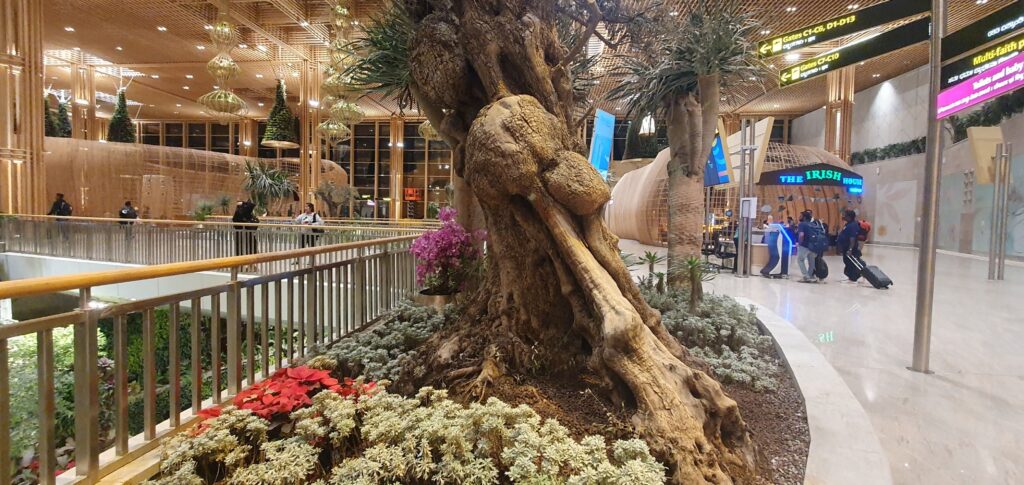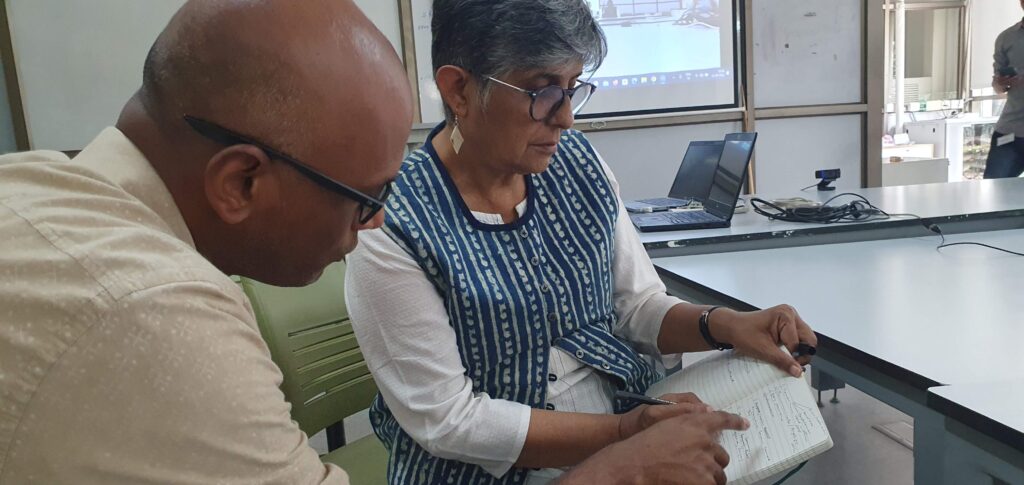Professor Graham Smith posts here about his recent visit to India to promote collaborative partnerships in environmental oral history.
Last month I travelled to Bengalūru, the capital and largest city in the southern Indian state of Karnataka to work with colleagues on an environmental oral history pilot project. We held a series of workshop sessions to discuss memories of environmental change recorded by researchers from across India. The gathering consolidated partnership approaches for larger scale oral history projects as well as generating new questions in research that use oral history to explore environmental history.


The “oral history and environmental science” workshop was hosted by the archives of the National Centre for Biological Science (NCBS) on their wonderful campus, which proved an inspirational venue for our three-days of discussion. It was heartening to be able to explore different disciplinary perspectives not only in a beautiful setting, but also without the levels of disciplinary boundary policing that bedevil similar initiatives in the global North. It is striking, for example, how important arts and the humanities are to the archive team at NCBS
The autumn workshop was organised and delivered by Professor Indira Chowdhury, India’s leading public oral historian, Venkat Srinivasan, the archivist at the NCBS, who is pioneering new approaches to archiving the history of science in India, and me, representing Newcastle University’s Oral History Collective. Participants were drawn from other science institutes as well as NGOs with each participant bringing along a recently recorded interview.
Building on training designed by our colleague Siobhan Warrington as part of the Living Deltas Hub,[1] as well as Indira’s and my teaching experience, the workshop participants had earlier attended online training sessions that covered the theory and practice of oral history from interviewee selection, through ethical considerations, to Venkat on curation and archiving.
In Bengalūru we were able to jointly explore oral histories that had been recorded in multiple locations and languages, and in different environmental settings with attendant challenges that included understanding human/animal conflict in the east and west of India, to supporting shepherding in the borderlands of the far north to island life in the south. During our meeting, the researchers collectively identified key themes from their interviews and began to develop analytical approaches as well as thinking through ways of returning findings to the communities that they are currently working in.
As a result of the workshops we have built an equitable collaboration that straddles different ethnicities, religions and languages, different geographies, from mountain to plain, from coast to forest, that will allow us to investigate the recent histories of many environmental challenges that include drought, soil degradation, cyclones, and flooding.
We continue to work through the bigger task of understanding how oral history may support positive and inclusive policy change at micro and macro levels.

As well as support from NCBS, which is part of India’s Tata Institute of Fundamental Research, and from Dr Siddhi Bhandari of the Srishti Manipal Institute of Art Design and Technology, funding was provided by Newcastle University’s Global Partnerships Fund and additionally from the School of History, Classics and Archaeology at Newcastle University.
[1] Siobhan Warrington, Laura Beckwith, Hue Nguyen, Graham Smith, Lan Nguyen, Thuy Mai Thi Minh, Chamithri Greru, Tanh Nguyen, Oliver Hensengerth, Pamela Woolner and Matt Baillie Smith (2023) “Managing distance when teaching, learning, and doing oral history: a case study from Vietnam,” In Melanie Nind, Handbook of Teaching and Learning Social Research Methods, Edward Elgar Publishing, Cheltenham.
